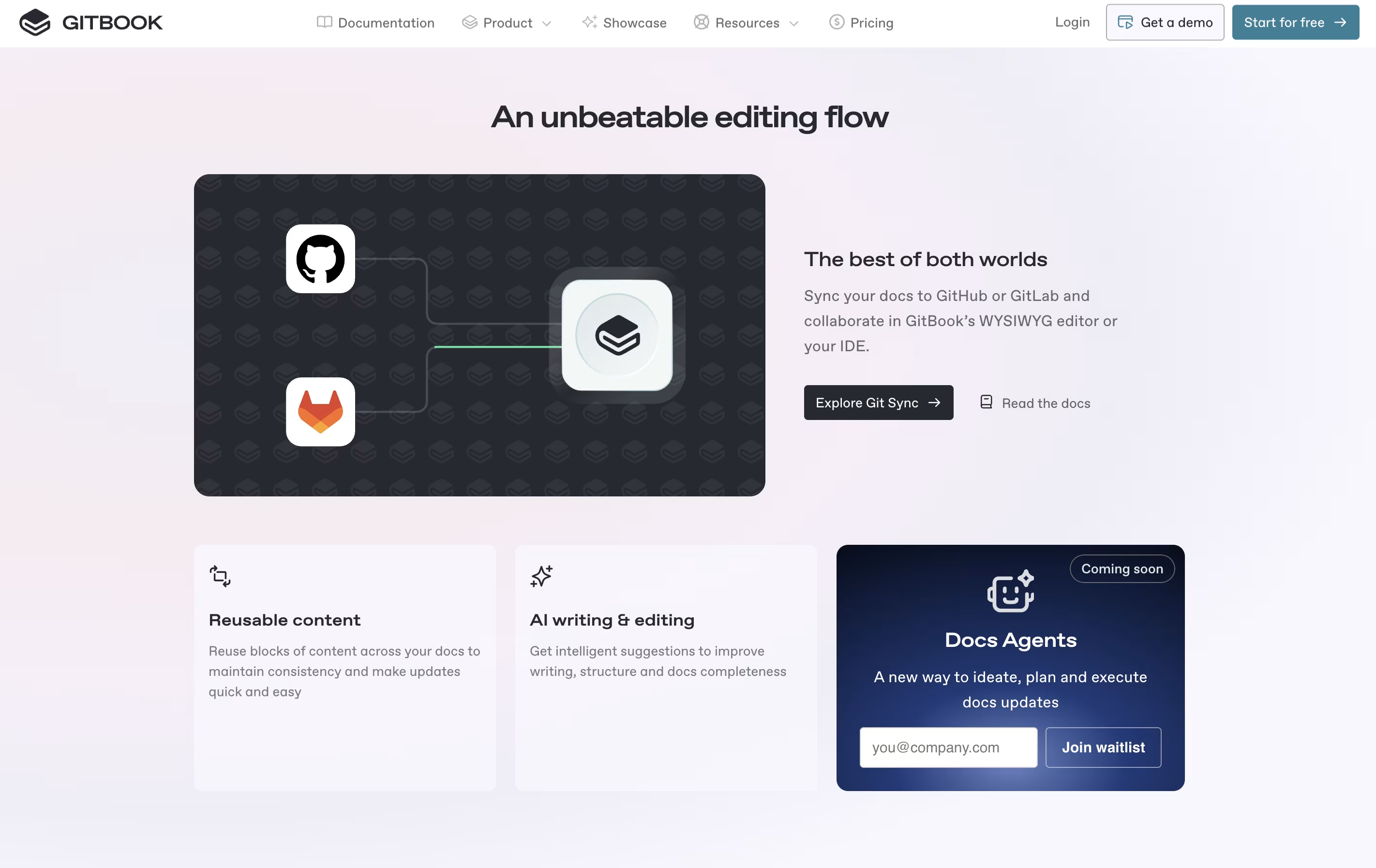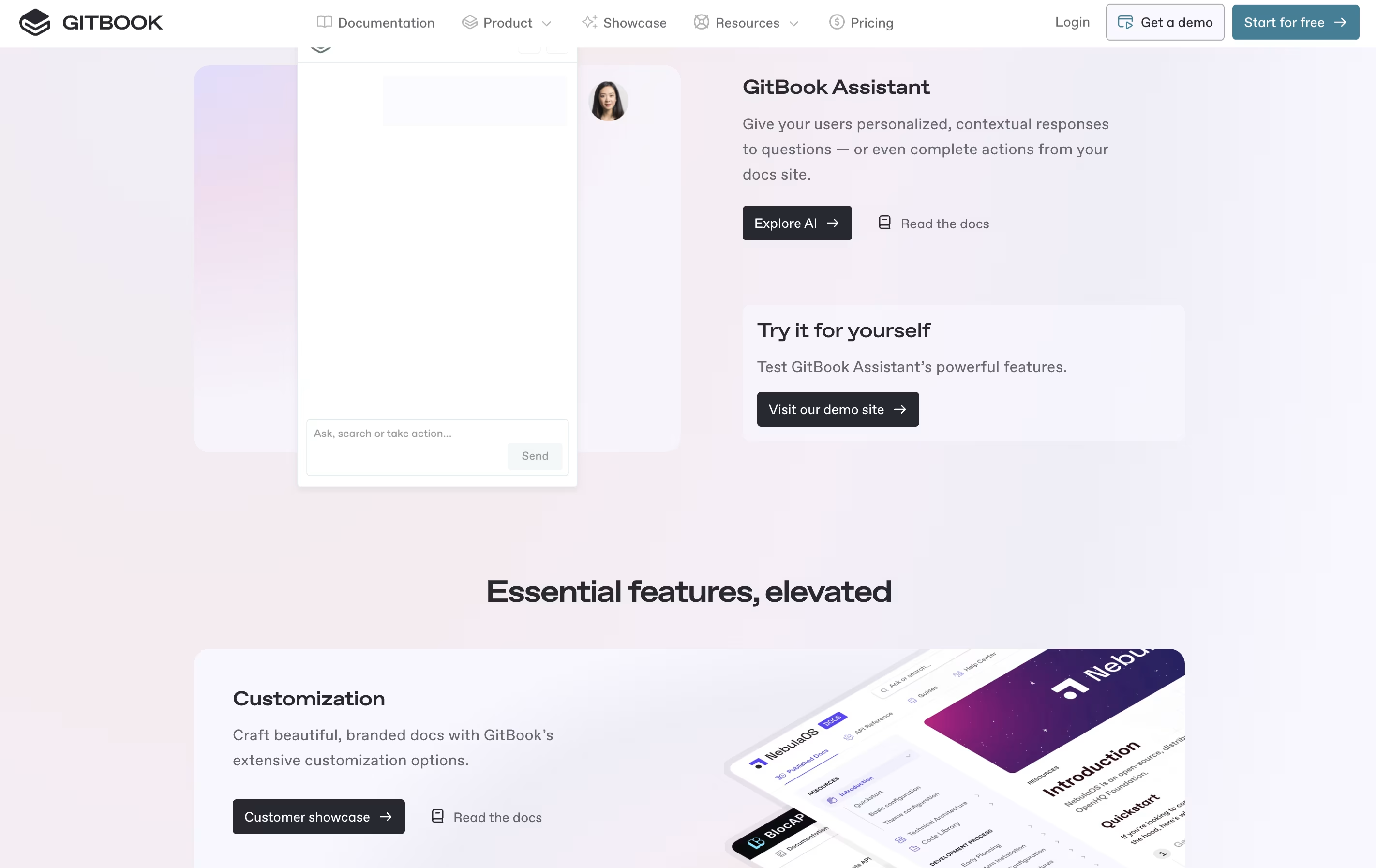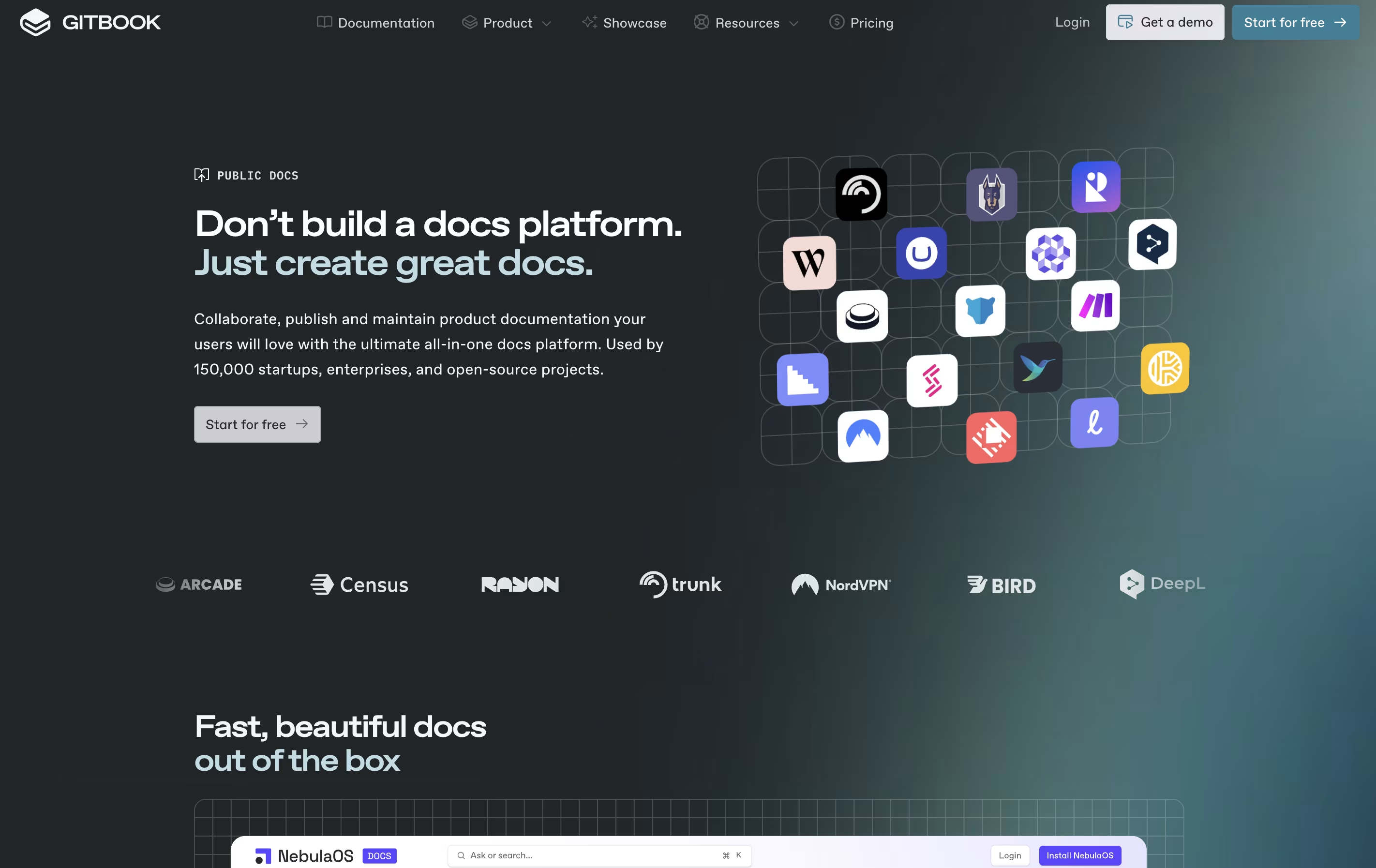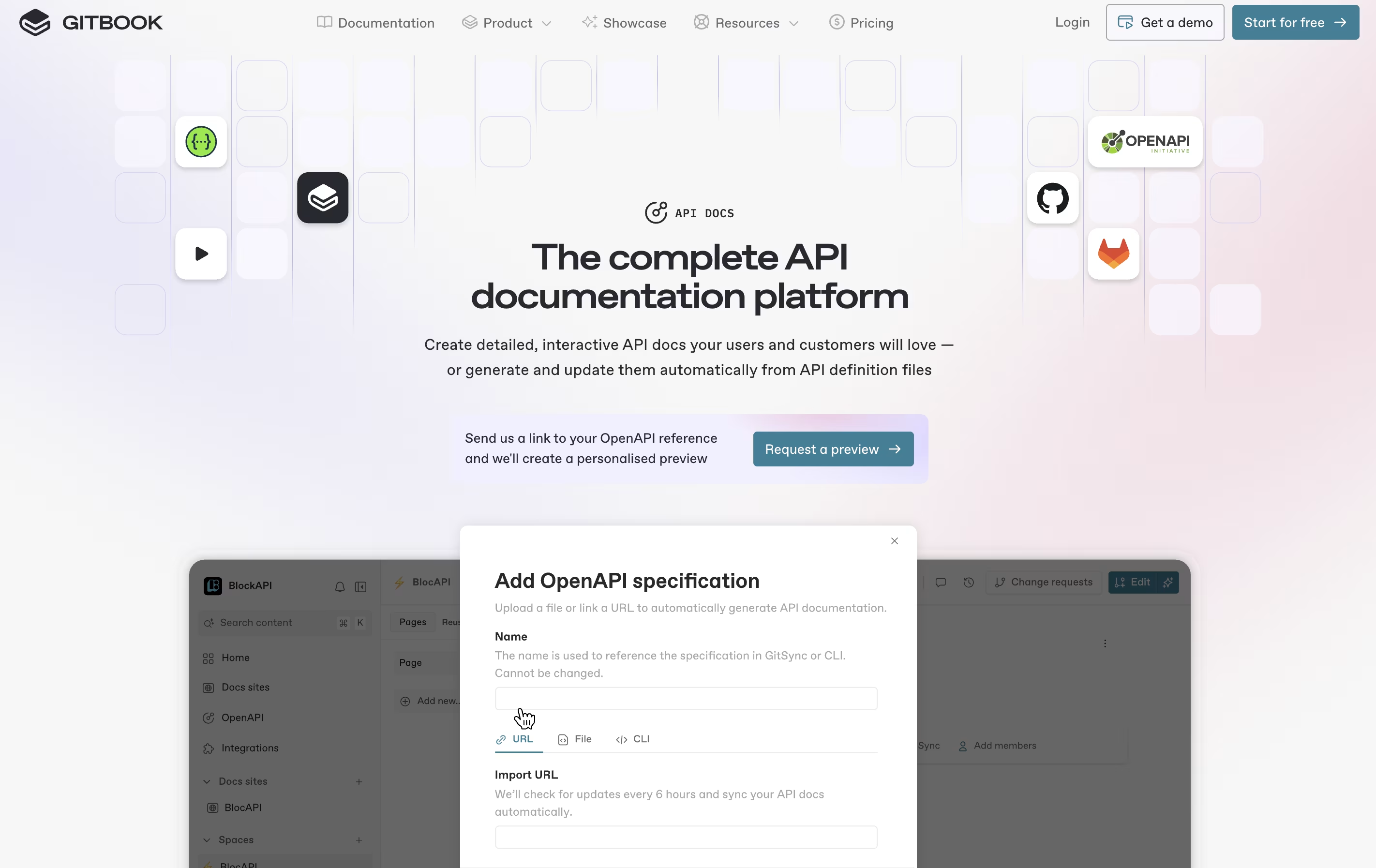
GitBook
GitBook is a documentation platform that helps teams create, manage, and publish beautiful technical documentation with AI-powered features.





What is GitBook
GitBook is a cloud-based tool designed specifically for creating documentation. Think of it as a specialized writing platform where you can build everything from simple user guides to complex API documentation. The platform uses a block-based editor, similar to modern website builders, making it easy to add text, images, code examples, and other content without coding knowledge.
What sets GitBook apart is its two-way sync with GitHub and GitLab. This means developers can write documentation directly in their code editor, while content teams work in GitBook's visual interface. Everything stays synchronized automatically. The platform also includes AI features that help users find information quickly and assist in creating content. You can publish documentation publicly or keep it private with password protection.
How to Use GitBook
Getting started with GitBook is straightforward. Here are the key steps:
Create an account by signing up with your email, GitHub, or Google account. You can start with the free plan to explore features.
Set up your first space, which is GitBook's term for a documentation project. Choose from ready-made templates for product docs, API documentation, or start from scratch.
Add content using the block-based editor. Click the plus button to insert paragraphs, headings, code blocks, images, or tables. The interface feels similar to writing in a modern word processor.
Organize pages in the sidebar by creating sections and subsections. Drag and drop to rearrange your content structure.
Sync with GitHub or GitLab if your team wants to manage documentation alongside code. This creates a two-way connection that keeps everything updated.
Publish your documentation when ready. You can use a gitbook.io subdomain for free or connect your own custom domain with paid plans.
Features of GitBook
AI-powered search and content assistance
Real-time collaboration with team members
GitHub and GitLab two-way synchronization
Block-based editor for easy content creation
Interactive API documentation from OpenAPI specs
Custom domains and full branding control
Public and private documentation publishing
Site analytics and search insights
Version control and change tracking
Templates for quick setup
Mobile-responsive design
Comment and feedback tools
GitBook Pricing
Free
Free
- 1 free user per site
- Block-based editor & integrations
- Sync with GitHub or GitLab
- Interactive OpenAPI docs
- Publish with a gitbook.io domain
- Basic collaboration features
Premium
$79 /mo
- All Free features
- Use your own custom domain
- Build branded documentation
- AI-powered instant answers
- Site insights & user feedback
- Site redirects
- $15 per additional user/month
Ultimate
$299 /mo
- All Premium features
- Scale docs with sections & groups
- Search across all your docs
- Authenticated access
- Custom fonts
- Adaptive content
- AI Assistant
- $15 per additional user/month
Enterprise
Custom
- All Ultimate features
- SAML SSO
- White-glove migration service
- Custom integrations
- 1:1 dedicated support
- User training
- Custom contract & invoicing
- Legal & security reviews
GitBook Use Cases
Who Can Benefit from GitBook
FAQ's About GitBook
Share your experience with GitBook
See what users are saying about GitBook
0 Reviews
No reviews yet
Be the first to review GitBook
Embed GitBook badges
Show your community that GitBook is featured on Tool Questor. Add these beautiful badges to your website, documentation, or social profiles to boost credibility and drive more traffic.











